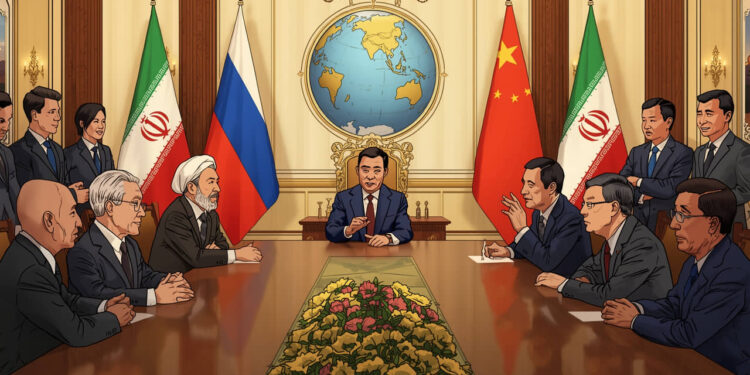Iran, Russia, and China released a joint statement announcing the end of the United Nations monitoring of Iran’s nuclear program. The statement was conveyed through official communication to the IAEA and the United Nations, as mandated by Resolution 2231 of the UN Security Council, the cornerstone of the 2015 JCPOA. The resolution expired on October 18, 2025, as stated in the trilateral statement, which indicates that all monitoring, reporting, and IAEA Director General reports under this framework have ceased.
The three nations stated in a joint letter to the IAEA Director General, Rafael Grossi, dated October 24, 2025, that the IAEA’s authority under Resolution 2231 to notify on Iran’s nuclear operations was no longer in force. Furthermore, they reinforced their resistance to the European ‘snapback’ initiative: a specific instrument requested by the United Kingdom, Germany, and France to reinstate UN sanctions on Iran. The E3 considered it to be devoid of any legal basis and a procedural violation. Tehran, backed by Moscow and Beijing, emphasized the importance of dialogue and negotiations over one-sided measures and intimidation.
Resolution 2231’s expiration fully eliminates the Iranian nuclear issue from the UN Security Council’s work program and puts an end to the Council’s continued engagement in this matter. As stated by Kazem Gharibabadi, Iran’s Deputy Foreign Minister for Legal and International Affairs, it also lifts restrictions and the international monitoring mechanisms established following the September 2015 JCPOA agreement. Initially, the resolution mandated ten-year monitoring following adoption by the IAEA and the elimination of all legal doubts about the fully peaceful nature of Iran’s nuclear program. After its expiration, the states involved in the agreement reiterate that the international legal framework governing this program has come to an end.
In turn, Iran condemned the European “snapback” of sanctions as illegitimate, claiming that the UK, France, and Germany had no standing to do so, having already stopped their commitments under both the JCPOA and the Resolution 2231. The European trio’s decision to reinstate sanctions revealed its unwillingness to normalize its relations with Iran and be accountable for its earlier commitments under the JCPOA. At the same time, Iran intensified relationships with the use of the Asian regional partners, expanded trade, continued to operate in non-dollar currencies, and expanded domestic nuclear and economic operations, courting the US sanctions and withdrawal from the JCPOA. This marks a significant diplomatic shift and raises questions about the prospects for nuclear non-proliferation diplomacy in the region. Iran sees the resolution as a return of its nuclear sovereignty, but Western countries are concerned about the prospects of renewed nuclear initiatives without international monitoring. Russia and China, on the other hand, remain lined up with Iran against reintroduced sanctions and stress multilateralism. Thus, Iran, China, and Russia effectively brought an end to UN nuclear monitoring in relation to Resolution 2231, marking a significant milestone and highlighting the divisions in geopolitical opinion on Iran’s nuclear activity and relevant sanctions.


